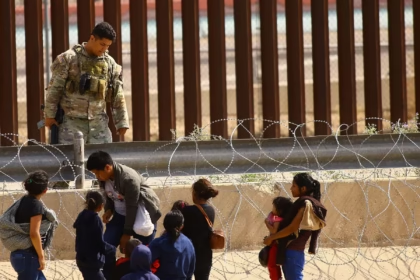Russia Returns Bodies of 1,200 More Ukrainians in Ongoing POW Swap Agreement
In one of the largest and most grim episodes of body repatriation since the Russia-Ukraine war began, Russian authorities have returned the bodies of more than 1,200 Ukrainian nationals as part of an ongoing prisoner-of-war (POW) swap agreement. While the world has watched ceasefire talks flicker and fade, this development underscores the war’s persistent human toll and the desperate search for closure among thousands of Ukrainian families.
The handover took place in multiple phases over the past few weeks and was confirmed by both the Ukrainian Coordination Headquarters for the Treatment of Prisoners of War and the International Committee of the Red Cross (ICRC). This transfer, though somber, is part of a broader diplomatic effort to maintain at least minimal humanitarian communication between the warring sides. It follows months of tense negotiations conducted with the mediation of international partners, including Turkey, Qatar, and neutral humanitarian organizations.
A Somber Return
According to Ukrainian officials, many of the remains belong to soldiers who perished in the most brutal and contested battle zones — including Bakhmut, Mariupol, and Avdiivka. Forensic experts are currently examining the bodies to identify them, a process that can take weeks or even months due to the conditions in which they were found. DNA samples are being matched with data provided by families who have reported missing loved ones.
“The return of the bodies is a painful but necessary part of our work. Every soldier deserves dignity in death, and every family deserves answers,” said Oleksandr Lytvynenko, Deputy Minister for Reintegration of the Temporarily Occupied Territories. “Each coffin that crosses back into Ukrainian territory represents not only a life lost but a duty fulfilled—to never leave our people behind.”
The recent handover was conducted through the Sumy region of northeast Ukraine, a border area that has seen repeated exchanges under heavily controlled and supervised protocols. Ukrainian forensic teams and religious clerics were present at the handover points, offering prayers and support to the transport teams.
Humanitarian Cost of War
Since the full-scale invasion began in February 2022, tens of thousands of Ukrainian and Russian soldiers have died, and thousands more remain unaccounted for. The Geneva Conventions require the proper handling and repatriation of war dead, but in many cases, bodies have been left on the battlefield for extended periods or buried in mass graves.
In Mariupol alone, Ukrainian officials estimate that at least 10,000 people died during Russia’s months-long siege of the city. As Russian forces gained ground, Ukrainian units were often forced to retreat without recovering their dead. For many families, the recent repatriations offer the first real hope of recovering the remains of loved ones lost more than a year ago.
“The last time I saw my son was on a video call from a trench near Bakhmut. He was tired but hopeful,” said Olena Dmytrenko, whose son Serhii was among the soldiers identified in the latest batch of returned bodies. “When the call ended, I prayed every night. Now, at least, I can give him a proper burial.”
Challenges in the Exchange Process
Although both sides have engaged in prisoner swaps and body returns, the process remains fraught with mistrust and delays. Russia has often been accused of withholding information about captured or deceased Ukrainian troops, while Ukraine has also faced accusations of delaying repatriations under certain circumstances.
The International Committee of the Red Cross has consistently called for better cooperation and transparency between the two countries. “The humanitarian imperative must override political calculations,” said Fabrizio Carboni, ICRC Regional Director for Europe and Central Asia. “Families have the right to know the fate of their loved ones, and the dead have the right to dignity.”
Mediators report that negotiating the logistics of body returns is often more challenging than prisoner swaps. Unlike living POWs, whose status can be confirmed through communication, the dead require forensic proof and mutual trust in the verification process. In many cases, bodies are mutilated or decomposed, complicating identification.
Reactions from the International Community
While the repatriation of bodies does not signal a political breakthrough, many international observers see it as a vital humanitarian gesture. The United Nations, European Union, and numerous human rights organizations have welcomed the news as a step toward compliance with international law, urging both sides to continue such efforts.
U.S. Secretary of State Antony Blinken stated, “We commend Ukraine for its relentless commitment to bringing home its fallen heroes. Russia must fully cooperate in all efforts to respect the rights and dignity of prisoners of war and the dead.”
Russia, in its official statements, emphasized that the exchange was a “mutual gesture of humanitarian responsibility” and insisted it too had returned Russian casualties in equivalent numbers. However, independent verification of Russian casualties remains scarce, and Kremlin transparency on the matter continues to be limited.
Psychological and Cultural Impact
The return of fallen soldiers carries immense emotional and cultural weight in Ukrainian society. Public funerals often draw crowds of mourners, and many cities have established walls of remembrance with photos, flowers, and military memorabilia.
Ukraine’s President Volodymyr Zelenskyy has repeatedly stressed that every soldier counts — whether alive, missing, or dead. In his recent address, he said, “We honor every warrior who gave their life for our nation. Every name is a story of courage. We owe it to their families and to history to remember, to recover, and to return.”
Ukrainian churches, NGOs, and civil society groups have been instrumental in supporting bereaved families. They provide psychological counseling, organize memorial services, and help navigate the bureaucratic process of identifying and burying the dead.
Conclusion
The return of 1,200 Ukrainian bodies by Russia is a powerful reminder that war does not just claim territory — it devastates families, leaves communities in mourning, and alters nations irrevocably. While this exchange will bring some measure of peace to grieving families, the tragedy behind each casket remains a stark call to the world: that human lives continue to be the true cost of war.
As fighting grinds on and diplomatic solutions remain elusive, the hope for an end to the suffering persists — carried by the resilience of those who still wait for answers and the silent testimony of those who never returned home alive.










